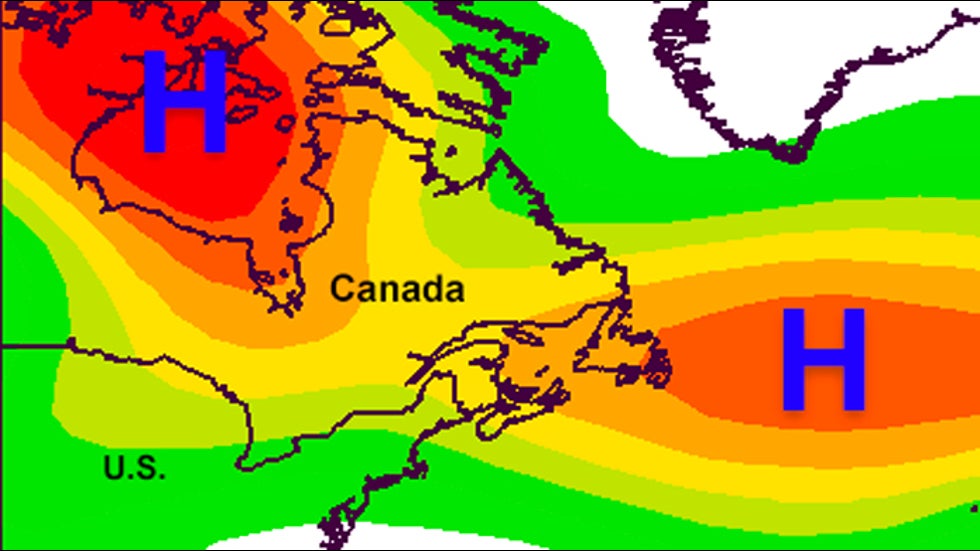Summer's temperatures have been record-hot in an of the United States that isn't usually associated with blazing heat.
At least five locations from upstate York to Maine had an average temperature that was the hottest on record from June 1 through July 27, or nearly the first two-thirds of summer. The summer months in meteorological records include June, July and August.
The locations that were record-hot: Albany, New York; Burlington, Vermont; Hartford, Connecticut; Concord, New Hampshire; and Caribou, Maine. Multiple other locations in upstate New York and New England had a top-five hottest June 1 through July 27, including Buffalo, New York, and Providence, Rhode Island.
 The numbers show where the average temperature from June 1 through July 27 ranks among the hottest for that period on record. A number 1 means it was the hottest June 1 through June 27 on record.
The numbers show where the average temperature from June 1 through July 27 ranks among the hottest for that period on record. A number 1 means it was the hottest June 1 through June 27 on record.A persistent weather pattern has been to blame for the warmth – namely, a ridge of high pressure in the upper atmosphere stretching from eastern and central Canada through New England to the North Atlantic. You can see this in the yellow and orange shadings in the map below.
 An average of the weather pattern from June through late July. Persistent high pressure led to hotter than average temperatures.
An average of the weather pattern from June through late July. Persistent high pressure led to hotter than average temperatures.This weather pattern has contributed to several heat accolades for the locations already mentioned.
Caribou, Maine, has had seven 90-degree days so far in 2020. That ties three other years (1949, 1952 and 1995) for the most days in the 90s. On June 19, Caribou hit 96 degrees, tying the city's all-time record high for any month.
Burlington, Vermont, has had 18 days in the 90s this year. That ranks among the top five years with the most 90-degree highs in records dating the late 1800s.
In Albany, New York, just eight days had a total day average temperature that was below average from June 1 through July 29.
Summer is not over yet. Above-average temperatures are expected in August, which could result in more heat notables in the region.
The Weather Company’s primary journalistic mission is to report on breaking weather news, the environment and the importance of science to our lives. This story does not necessarily represent the position of our parent company, IBM.
The Weather Company’s primary journalistic mission is to report on breaking weather news, the environment and the importance of science to our lives. This story does not necessarily represent the position of our parent company, IBM.

No comments:
Post a Comment